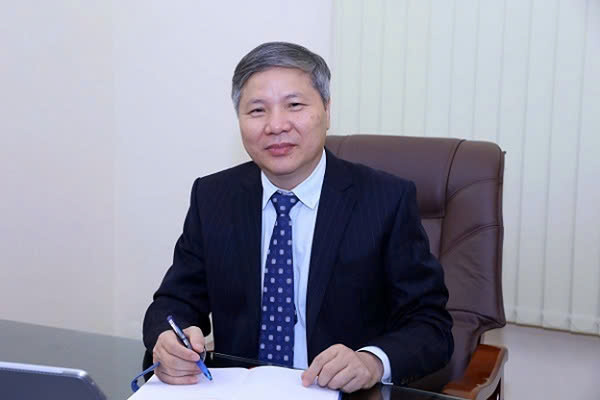Giving medicine every 2 months - reduces hospital burden, patients are "slow"
Mr. Do Van Quang (73 years old, Dong Da - Hanoi) has just scheduled to get cardiovascular medicine at Xanh Pon General Hospital. Every 2 months, he goes to the hospital to get medicine, instead of having to go to the doctor every month as before.
"There are many hospitals, but chronic patients like us are quite inconvenienced to see them every month, it takes time, sometimes the prescription is still the same as the previous examination, there is no need to adjust, because taking medicine regularly to stabilize the disease and not improve it is not possible. Many times I wait until the results of the examination and get the prescription until late at night to get home. Now it's much better" - Mr. Quang shared.
In Hanoi, Xanh Pon Hospital is currently applying 2-month/ prescription for chronic patients from November 2024 to present.
According to Ms. Tran Lien Huong - Deputy Director of Xanh Pon Hospital, in the period of 2020-2023, Xanh Pon Hospital provides medicine for outpatients for a maximum of 3 months/time in the context of the COVID-19 epidemic, currently the hospital has a policy of providing medicine for 2 months/time to people with chronic diseases such as diabetes, high blood pressure, blood lipid metabolism disorder, arthritis, rheumatoid arthritis, chronic viral hepatitis B, allergic capillary arthritis, Parkinson's...
A total of 2,300 patients are being examined and receiving medicine in this form at Xanh Pon Hospital and this number has increased over time.
Mr. Luong Duc Dung - Head of the General Planning Department, Xanh Pon Hospital said that the rate of patients receiving medicine every 2 months that have to return for a follow-up within 50 days (nearly 2 months) accounts for 3% in this group, the main causes are side effects, unwanted reactions, need to adjust dosage or change medicine, and experience unusual symptoms...
97% of 2,300 patients are given medicine for longer periods of treatment than safe, without having to be re-examined before the new examination. Mr. Dung said that this helps save travel time and waiting time for examination, especially for patients who are elderly and those who are far from the hospital.
For the hospital, Mr. Dung said that this policy also contributes to significantly reducing the frequency of patients coming to the hospital, especially during peak patient hours of 8-10 am and 1-25 pm, thereby making it more convenient for professional work in medical examination departments.
Xanh Pon Hospital currently has 230,000 people with health insurance cards registering for initial medical examination and treatment. If the number of chronic patients registering to receive medicine every 2 months increases, the burden reduction effect may be even higher.
The plan is good but there are very few hospitals applying it
In recent years, the overload of medical examination and treatment at some major hospitals across the country has occurred, causing difficulties for people to go for medical examination and treatment. Mr. Nguyen Duc Hoa - Deputy Director of Vietnam Social Insurance said: During the COVID-19 pandemic quarantine period, the Ministry of Health and Vietnam Social Insurance have coordinated to overcome and propose solutions to solve this situation.
Social insurance and the health sector have instructed hospitals to issue medicine every 2-3 months to patients with chronic diseases (such as diabetes, blood pressure, etc.) for stable treatment.
According to Mr. Hoa, in the past 2 years, Vietnam Social Insurance has proposed many ways of doing things like Xanh Pon and the Ministry of Health have also agreed, but very few hospitals have applied them after COVID-19.
"In addition to extending the time of providing medicine to chronic patients, it is necessary to improve the quality of lower-level medical facilities. With a quality undergraduate medical examination and treatment policy and a good service attitude, patients will not have to wait at the upper level, or the health sector will have a rotation policy to send doctors to the lower level for medical examination and treatment as before to reduce the burden" - Deputy Director of Vietnam Social Insurance Nguyen Duc Hoa emphasized.

Ms. Tran Thi Trang, Director of the Department of Health Insurance (Ministry of Health) said that the proposal of Vietnam Social Insurance to extend the time for providing medicine to chronic patients is reasonable.
Ms. Trang said that for many chronic patients who have been treated stably, it can increase the time for giving medicine, not only making it easier for patients not to travel or wait but also helping the hospital reduce the burden. "When the hospital reduces the number of chronic patients, it will have time and human resources to examine and treat more serious patients," said Ms. Trang.
In addition, she also believes that extending the time for drug supply also saves the health insurance fund by reducing examination and testing (if any). Saving the health insurance fund will help have resources to expand the rights of patients. "However, the top priority is still to ensure effective treatment for patients," said Ms. Trang.










